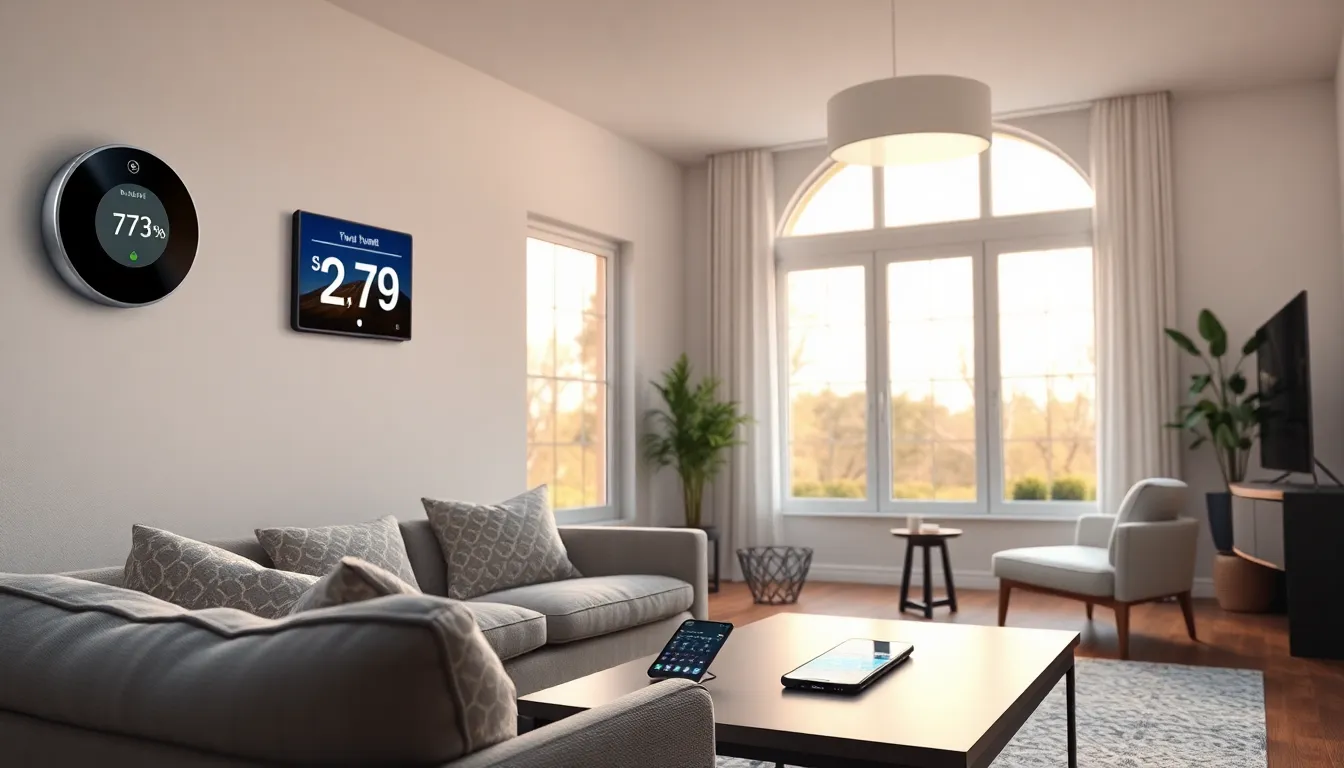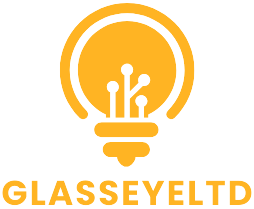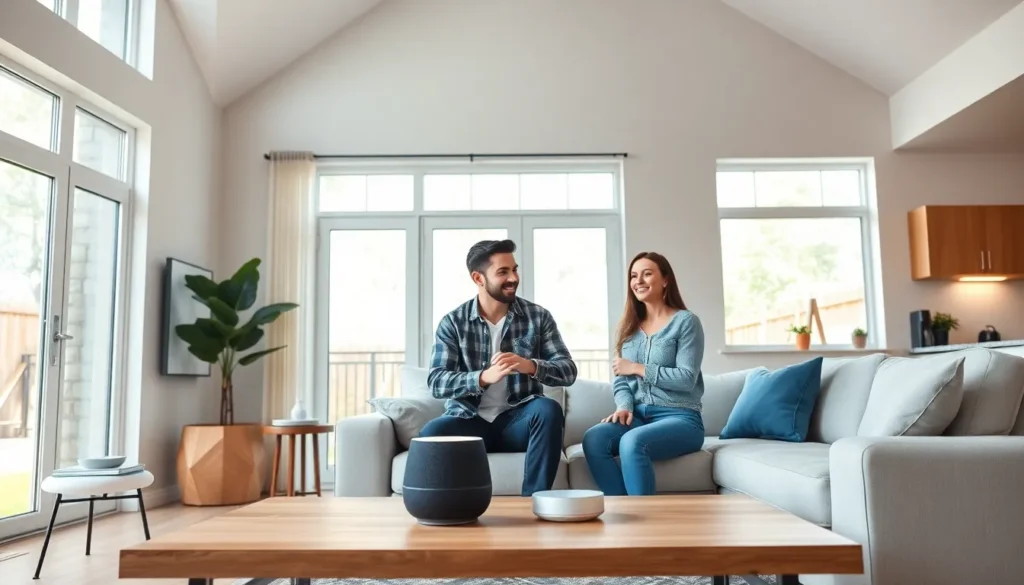Table of Contents
ToggleImagine a home that practically runs itself. With smart homes for sale, this dream is becoming a reality faster than you can say “Alexa, turn on the lights.” These tech-savvy abodes are designed to make life easier, safer, and a whole lot cooler. From voice-activated assistants to smart thermostats that know when you’re too hot or too cold, these homes are the future of living.
Overview of Smart Homes
Smart homes integrate advanced technology to enhance daily living. Home automation devices enable users to control lighting, security, and temperature easily. Features like smart locks provide security, ensuring that homeowners can monitor access remotely. Energy-efficient appliances, including smart refrigerators and washing machines, optimize resource usage while lowering utility bills.
Voice-activated assistants, such as Amazon Echo and Google Nest, facilitate hands-free control of various home systems. Homeowners can set reminders, play music, or check the weather using simple voice commands. Furthermore, intelligent thermostats learn preferences to maintain comfort levels while reducing energy consumption.
Data reveals that smart home technologies can increase property value, attracting buyers looking for modern amenities. As more individuals prioritize convenience and sustainability, the demand for smart homes continues to grow. Research indicates that nearly 70% of homeowners express interest in smart home technologies.
In addition to comfort, smart homes enhance safety. Surveillance cameras can be monitored from mobile devices, providing peace of mind while away from home. Smart smoke and carbon monoxide detectors send alerts in emergencies, ensuring prompt response.
Energy monitoring systems also play a role in promoting eco-friendly living. Homeowners can track energy usage patterns and adjust behaviors to reduce waste. Approximately 50% of smart home users report feeling more connected to their energy consumption habits.
This shift towards smart living reflects broader trends in technology and real estate. As innovations advance, the features and functionalities of smart homes will evolve further, shaping the future of residential living.
Benefits of Smart Homes

Smart homes provide a range of advantages that enhance living experiences. From energy efficiency to improved security, these homes are equipped with technology that adapts to users’ needs.
Increased Energy Efficiency
Smart homes use advanced appliances and systems to reduce energy consumption. Intelligent thermostats learn patterns and adjust climate settings accordingly, cutting energy bills by up to 15%. Energy-efficient devices like smart refrigerators and LED lighting optimize usage, promoting eco-friendly habits. Homeowners can use energy monitoring systems to track their consumption, with 50% reporting a greater awareness of their usage habits. Overall, these features support sustainability while offering financial savings.
Enhanced Security Features
Safety measures in smart homes include smart locks and surveillance cameras, which can be monitored remotely via mobile devices. These systems enable homeowners to control access, receiving alerts about suspicious activities in real-time. Smart smoke and carbon monoxide detectors provide timely notifications during emergencies, facilitating quick responses. With enhanced monitoring capabilities, homeowners feel more secure, knowing they can oversee their property from anywhere.
Convenience and Comfort
Convenience is a hallmark of smart homes, allowing users to manage various systems through voice commands or mobile apps. Voice-activated assistants simplify daily routines, from setting reminders to controlling lights and temperatures. Features like automated lighting create a comfortable ambiance, adjusting based on the time of day. Increased automation not only adds comfort but also streamlines daily tasks, making life easier and more enjoyable.
Popular Smart Home Technologies
Smart home technologies enhance the living experience by integrating convenience, security, and efficiency into daily life. Key innovations include home automation systems, smart lighting solutions, and advanced security systems.
Home Automation Systems
Home automation systems streamline daily tasks by connecting various devices under a centralized control hub. Integration allows homeowners to manage lighting, heating, and appliances through smartphones or voice commands. Many systems now feature compatibility with popular platforms like Amazon Alexa and Google Assistant. User-friendly interfaces simplify routines, letting homeowners program schedules for appliances. Data shows that automation can save up to 30% on energy costs through optimized usage patterns. This efficiency further drives the appeal of smart homes in today’s real estate market.
Smart Lighting Solutions
Smart lighting solutions provide flexibility and energy efficiency tailored to individual preferences. Homeowners can adjust brightness and color temperature using mobile apps or voice commands. Advanced features include motion sensors that automatically turn lights on and off, enhancing security and energy savings. Systems can include smart bulbs capable of scheduling and dimming to suit different activities. Research indicates that smart lighting can cut energy consumption by as much as 50%, delivering both environmental benefits and reduced bills. Engaging in this technology supports an eco-friendly lifestyle while adding sophistication to home aesthetics.
Advanced Security Systems
Advanced security systems incorporate cutting-edge technology to safeguard properties effectively. Surveillance cameras equipped with HD video provide real-time monitoring accessible via smartphones. Smart locks allow for secure, keyless entry and can send alerts when doors are opened or closed. Many systems include motion detectors that trigger alarms or notifications for unusual activity. Approximately 75% of smart home users feel more secure due to these enhanced capabilities. Integrating advanced security features significantly boosts home safety and appeals to prospective buyers seeking peace of mind.
How to Choose the Right Smart Home
Choosing the right smart home requires careful consideration of personal needs and budget. Buyers must assess features that contribute to comfort, efficiency, and security before making a decision.
Assessing Your Needs
Start by identifying daily activities that can benefit from automation. Is energy efficiency a priority? Look for homes with intelligent thermostats and energy monitoring systems. Evaluate security features, such as surveillance cameras and smart locks, to determine the level of safety desired. Assess compatibility with existing devices, ensuring seamless integration into daily routines. Consider whether voice-activated assistants will enhance lifestyle convenience. Determine personal preferences in lighting and sound systems that align with daily use.
Budget Considerations
Establishing a budget is essential when selecting a smart home. Determine how much to allocate for initial costs, which can vary significantly based on features and technology. Prioritize quality over quantity; investing in reliable brands often results in long-term savings. Analyze potential energy savings, as advancements can cut utility bills by up to 30%. Factor in installation costs as some systems require professional setup. Understand that ongoing maintenance might also affect the budget; some devices need regular updates or replacements.
Smart Homes for Sale: Market Trends
Smart homes dominate the real estate landscape, reflecting increasing consumer demand for enhanced living experiences. Data shows smart home technologies can boost property value and appeal.
Current Demand and Supply
Demand for smart homes continues to surge, with nearly 70% of homeowners interested in modern tech amenities. Supply struggles to keep up with this rising interest, creating competitive markets in various regions. Features like energy-efficient appliances and advanced security systems attract buyers, driving prices upward. Sellers can capitalize on this trend by highlighting smart home technologies in listings. Increased awareness of energy savings also plays a crucial role in shaping buyer preferences.
Regional Variations
Regional variations significantly impact the smart home market. Urban areas often see higher demand due to the concentration of tech-savvy buyers, while rural regions may experience slower adoption rates. Coastal cities usually lead in smart home sales, driven by higher disposable incomes. In contrast, markets in the Midwest display a growing interest but lag in availability of advanced technologies. Each region showcases unique consumer behaviors, influencing the types of smart home features that attract buyers. Understanding these variations helps sellers strategically position their properties.
Smart homes are revolutionizing modern living by blending convenience with cutting-edge technology. As homeowners increasingly seek enhanced comfort and security, the demand for these properties continues to rise. With features like energy-efficient appliances and advanced security systems, smart homes not only improve daily life but also offer significant long-term savings.
For those considering a smart home purchase, understanding personal needs and budget is essential. As the market evolves, staying informed about trends and regional demands will empower buyers to make choices that align with their lifestyles. Embracing the smart home movement is more than just a trend; it’s a step toward a more efficient and connected future.




